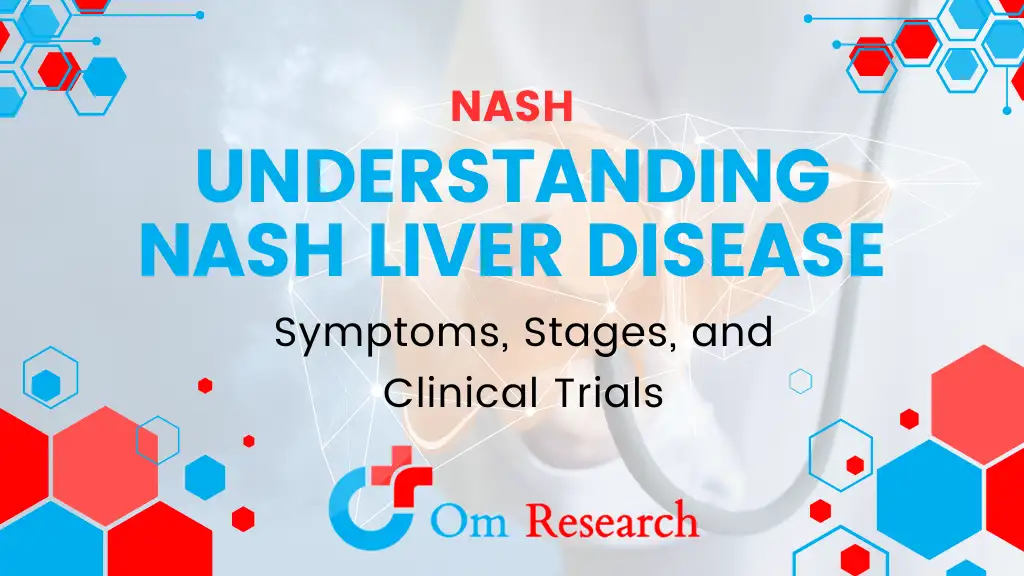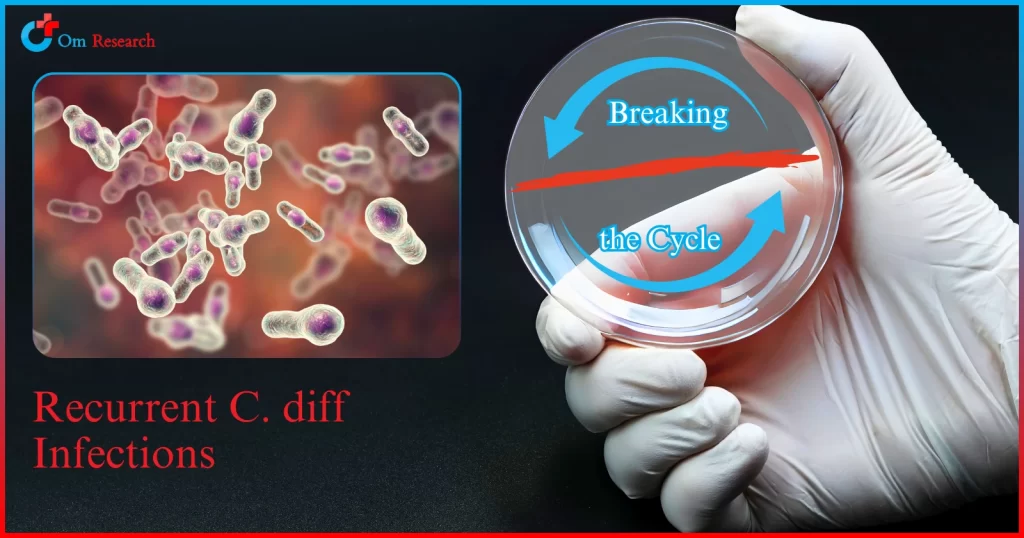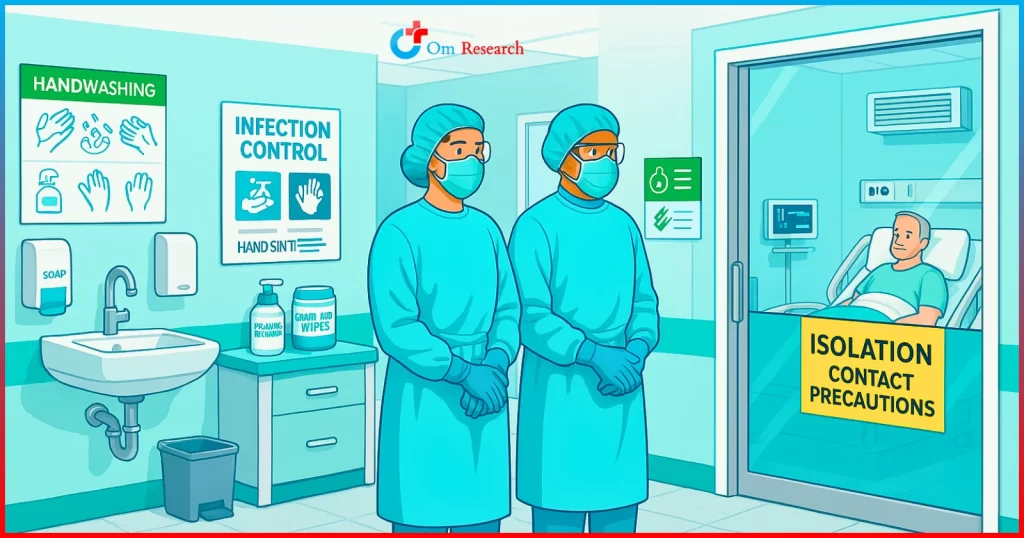Introduction
Nash Liver Disease (NASH) is a progressive liver condition that has become a significant health concern recently.
As a patient suffering from NASH or someone interested in participating in a clinical trial for NASH, it’s essential to gain a comprehensive understanding of this disease.
This blog article, written by a highly experienced clinical trials expert, will explore NASH and provide valuable insights into its symptoms, stages, and the importance of clinical trials.
By the end of this article, you will know to make informed decisions about your health and consider enrolling in clinical trials at Om Research.
What is Nash Liver Disease?
NASH, short for Non-Alcoholic Steatohepatitis, is a liver condition characterized by inflammation and fat accumulation in the liver.
Unlike a simple fatty liver disease, NASH involves liver cell damage and can progress to more severe stages if left untreated. Understanding the basics of NASH is crucial for effectively managing the disease and seeking appropriate medical interventions.
Symptoms and Diagnosis of Nash Liver Disease
Identifying the symptoms of NASH can be challenging as the condition is often asymptomatic in its early stages.
However, as the disease progresses, patients may experience fatigue, abdominal discomfort, and unintended weight loss. Recognizing these symptoms can prompt timely medical evaluation and diagnosis.
Diagnostic procedures for NASH include blood tests, imaging techniques, and occasionally a liver biopsy for accurate assessment.
Nash Liver Disease Stages
NASH progresses through different stages, each with varying degrees of liver damage. These stages include simple fatty liver (steatosis), inflammation (NASH), fibrosis, and ultimately cirrhosis.
Understanding the stages of NASH helps patients comprehend the potential implications of the disease and the importance of early intervention.
Nash Liver Disease: A Metabolic Disease
NASH is strongly associated with metabolic factors, including obesity, insulin resistance, and diabetes. Addressing these underlying metabolic conditions is essential for effectively managing NASH.
Lifestyle modifications such as a healthy diet, regular exercise, and weight loss can significantly impact the progression of the disease and improve overall outcomes.
Clinical Trials for Nash Liver Disease
Clinical trials are vital in advancing medical knowledge and discovering new treatments for NASH.
Participating in clinical trials provides patients access to potential cutting-edge therapies and contributes to the collective understanding of the disease.
Enroll in clinical trials at Om Research to be at the forefront of NASH research and receive expert care under the guidance of experienced medical professionals.
Frequently Asked Questions
What is the life expectancy of individuals with NASH liver disease?
The life expectancy of individuals with NASH liver disease varies depending on various factors, including the stage of the disease, the presence of complications, and the effectiveness of management strategies.
By actively participating in clinical trials and adopting appropriate lifestyle changes, patients can improve their prognosis and potentially prolong their life expectancy.
How can NASH disease be managed?
Managing NASH involves a multidisciplinary approach focusing on lifestyle modifications, including a balanced diet, regular exercise, weight loss, and controlling underlying metabolic conditions such as diabetes and obesity.
Effective management also requires regular monitoring of liver health through medical consultations and necessary interventions prescribed by healthcare professionals.
Are there any approved medications for NASH?
Currently, there are no FDA-approved medications specifically for treating NASH. However, various clinical trials are underway to evaluate the efficacy and safety of potential therapeutic options.
Participating in clinical trials provides an opportunity to access these investigational treatments and contribute to the advancement of NASH research.
Can NASH be reversed through lifestyle changes alone?
Yes, lifestyle changes, particularly adopting a healthy diet and engaging in regular physical activity, can help manage NASH and potentially reverse its effects. These modifications contribute to weight loss, improved insulin sensitivity, and reduced liver fat accumulation.
However, individual responses may vary, and it’s crucial to work closely with healthcare professionals to develop a personalized management plan.
What are the eligibility criteria for participating in a NASH clinical trial?
Eligibility criteria for NASH clinical trials may vary depending on the specific study. Generally, criteria consider age, NASH diagnosis, disease severity, and overall health.
To explores clinical trial opportunities at Om Research, contact our team to discuss your eligibility and potential involvement in groundbreaking research.
Conclusion
Nash Liver Disease is a complex condition that requires a comprehensive understanding for effective management. By recognizing NASH’s symptoms, stages, and metabolic connections, patients can take proactive steps toward improved health outcomes.
Furthermore, by enrolling in our clinical trials using Fibroscan, you can contribute to advancing medical research and aid in the development of new treatments for liver disease.
Contact Om Research at (855) 75-TRIALS or via email at info@omclinicaltrials.com or visit our website omclinicaltrials.com to learn more about our NASH, NAFLD, or Fatty Liver clinical trials and how you can get a free Fibroscan at no cost to you nor your insurance.



